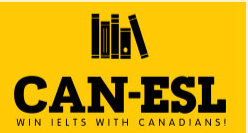
In a significant shift in immigration policy, French language proficiency will play a pivotal role in Canada’s Express Entry draws for 2024. According to recent data released from an Access to Information Request (ATIP) obtained by Carry Immigration and shared with CICNews, a whopping 78.5% of all Invitations to Apply (ITAs) will be issued to candidates in category-based selection draws, with French proficiency candidates poised to receive 30% of these ITAs.
This strategic focus underscores the importance of bilingual skills in Canada’s labour market, where the demand for French-speaking skilled workers remains high. The prioritization of French proficiency in the Express Entry system aligns with findings from both the Labour Market Information Council and Statistics Canada, which highlight the significant advantages bilingual candidates hold in the job market and their higher rates of employment.
Why French Proficiency?
The emphasis on French language skills is not arbitrary. It stems from persistent challenges faced by Canadian employers in finding qualified bilingual candidates, especially in regions outside of Quebec. Recognizing the crucial role of language in integration and economic success, Immigration, Refugees, and Citizenship Canada (IRCC) has adjusted its strategy to fill immediate labour shortages and support public service accessibility in both official languages.
The targeted categories for 2024 will also include healthcare (15%), STEM occupations (25%), and smaller proportions for trades and transportation. This structured approach was first introduced in May 2023 to streamline the selection of candidates whose skills are urgently needed in the Canadian economy.
Impact on Immigration Targets and Draws
The strategic focus on French proficiency has proven effective, as evidenced by the achievement of IRCC’s francophone immigration targets outside of Quebec, which surpassed its 4.4% goal in 2023. This success has set the stage for a higher target of 6% in 2024, reflecting a growing acknowledgment of language’s role in economic and community integration.
Details from the 2024 ATIP indicate that IRCC plans to maintain a predictable schedule for Express Entry draws to provide consistency and planning clarity for provinces, territories, and applicants. Despite the uncertainty about the exact frequency and size of the draws due to redacted details, it is clear that IRCC intends to align its invitations with the broader objectives of its Immigration Levels Plan, which targets the admission of over 110,000 new permanent residents in 2024.
Implications for CRS Scores and Candidate Selection
With category-based draws, there’s an expected shift in the Comprehensive Ranking System (CRS) scores. Early indications suggest that category-based draws, such as those for French proficiency, could have significantly lower CRS cut-off scores compared to general draws. This adjustment is anticipated to enhance occupational and source country diversity among immigrants, though it could also lead to varied economic outcomes.
Conclusion
The focus on French language proficiency in the 2024 Express Entry draws represents a deliberate effort by the Canadian government to support bilingualism across the country and to address specific labour market needs. This policy shift not only facilitates the entry of French-speaking immigrants but also enhances the cultural and linguistic fabric of the nation. As these changes unfold, prospective applicants and stakeholders in the immigration system will need to stay informed and adaptable to maximize their opportunities under the new framework.
Get a Free Express Entry Assessment: [Link to Assessment]
Understanding the nuances of these changes is crucial for those considering applying through the Express Entry system. Guidance and assessment services are available to help candidates navigate this evolving landscape and optimize their chances of success.





